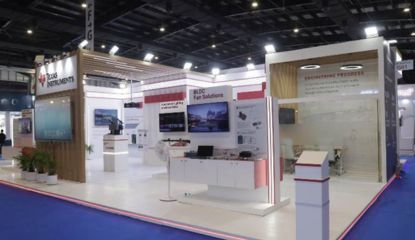Texas Instruments (TI) has announced its India Automotive Seminar 2024, where automotive designers will learn about the latest innovations and emerging automotive trends. At the seminar, taking place on November 19 in Pune and November 22 in Bangalore, attendees will meet with TI experts in sessions on how to use TI’s innovative technology to address critical areas in automotive applications, such as battery management system (BMS), car access and infotainment.
“To address ever-evolving challenges, automakers are looking to semiconductor advancements from reliable suppliers,” said Elizabeth Jansen, sales director, Texas Instruments India. “In areas such as intelligent EV powertrains and software-defined vehicles, the insights and technologies at TI’s India Automotive Seminar will help drive automotive forward alongside automakers. We’re building reliable, cost-efficient, and intelligent technologies that are at the core of safer and smarter vehicles.”
In addition to educational sessions, attendees will see live demonstrations of TI’s analog and embedded processing portfolio and design resources enabling hybrid and electric powertrain systems, body electronics and lighting solutions, and infotainment and cluster solutions.
Demonstrations at India Automotive Seminar 2024
- Vehicle electrification: For manufacturers who are developing smarter, safer electric vehicle (EV) systems, TI will showcase devices that help meet functional safety standards in BMS and smarter EV powertrains.
o 48V BMS reference design: Advanced BMS helps overcome some of the most critical barriers to widespread adoption: driving range, safety, performance, reliability, and cost.
o Traction inverter 5KW: Advances in traction inverters, enabled by TI’s microcontrollers with real-time control capabilities and isolated gate drivers, are pushing expectations of EV performance even further. Better switching speeds lead directly to improvements in reliability, performance, weight, and power density.
o New TI programmable logic device portfolio: Programmable logic devices can integrate up to 40 combinational and sequential logic and analog functions into one chip, reducing board size as much as 94% — and lowering system costs — compared to discrete logic implementations.
- Body electronics and lighting: TI’s products address common challenges such as load driving, condition diagnostics, and fault detection and optimize automotive light-emitting diode (LED) lighting systems. Designers can use TI reference designs to quickly develop door locks; window lifts; seat heaters; heating, ventilation and air conditioning lamps; and more.
o Radar kick-to-open demo: Demonstration of TI mmWave radar sensors which enable automakers to integrate more sensing into any level of vehicle, helping to make automobiles safer.
o OPT4001-Q1 light-to-digital sensor: Designed for systems that require light-level detection to enhance user experience, this sensor often can be used to replace low-accuracy photodiodes, photoresistors and other ambient light sensors to improve human eye matching and near-infrared rejection.
- Infotainment and cluster: TI’s broad analog and embedded processing portfolio enables applications such as car audio, navigation systems, power supplies, as well as in-car and personal entertainment.
o Bulk acoustic wave (BAW) oscillators: The industry’s first BAW-based fixed-frequency oscillator offers jitter performance lower than 100fs, stability across 10 years of aging and vibration, and low current consumption in industry-standard packages.
o Dynamic ground projection with DLP® technology: Enable dynamic content to be displayed anywhere around the vehicle with DLP3021-Q1 and DLP2021-Q1 digital micromirror devices. These DLP products are automotive-qualified, compact and reprogrammable, enabling a system that can display an infinite number of full-color images and videos for vehicle personalization, customization and styling.
o Ultrasonic lens cleaning: TI’s ultrasonic lens cleaning chipset automatically detects when there is an obstruction on the lens and activates a cleaning cycle to remove contaminants — reducing the need for human intervention and maintenance, even in complex integrated systems.
o Digital cluster: The entry-level automotive-grade AM62 Arm®-based processors address automotive applications like driver monitoring systems and entry-level digital clusters.
o Front Camera: AM62 processors are built for a set of cost-sensitive automotive applications including driver and in-cabin monitoring systems, and the next generation of eMirror systems.








